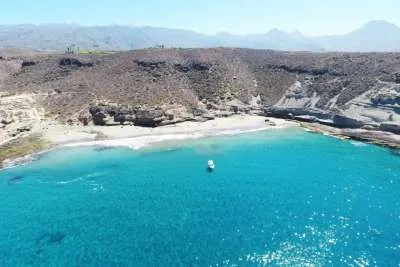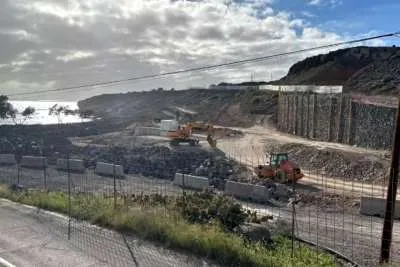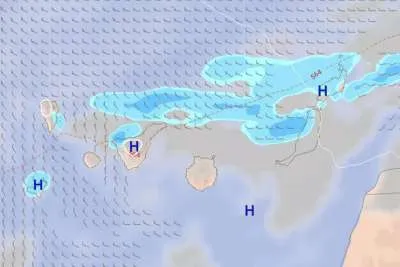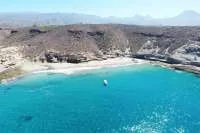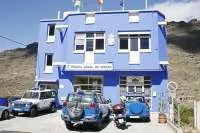AI-Powered Tourism: Personalized Experiences in the Canary Islands
- 03-09-2025
- Travel
- collaborative post
- Photo Credit: Freepik
Tourism has always been at the heart of the Canary Islands’ economy, drawing millions of visitors each year to its unique blend of volcanic landscapes, subtropical climate, and rich cultural traditions. Yet, as global travel evolves, so too do visitor expectations. Today’s travellers want more than sun and sand; they want experiences tailored to their preferences, lifestyles, and even moods.
Artificial Intelligence (AI) is emerging as the key enabler of this transformation, offering new ways to personalise tourism while supporting the sustainability and competitiveness of the islands’ hospitality sector.
In many ways, AI functions as a digital partner that adapts to travellers' needs in real time. Just as tools can rephrase AI with Overchat to reshape complex ideas into accessible narratives, AI systems in tourism can reframe visitor journeys—curating unique itineraries, predicting interests, and delivering meaningful cultural encounters. This is not about replacing human hospitality but about amplifying it with technology that learns, anticipates, and responds.
THE IMPORTANCE OF PERSONALISATION IN MODERN TOURISM
Tourism is no longer about standardised packages. Research from McKinsey (2023) shows that 71% of consumers now expect personalised interactions, and companies that excel at this generate 40% more revenue than their competitors. In the context of the Canary Islands, where repeat visitors make up nearly 30% of annual tourists, personalisation is not just an advantage; it is a necessity to maintain loyalty and distinguish the destination in a crowded global market.
AI-driven personalisation can bridge the gap between the islands’ diverse offerings, ranging from hiking in La Palma’s Caldera de Taburiente to kitesurfing in Fuerteventura, and the equally diverse expectations of international travellers.
HOW AI IS SHAPING TOURISM IN THE CANARY ISLANDS
Smart Recommendation Systems
AI-based recommendation engines analyse visitor data such as booking history, social media activity, and even real-time location to create individualised itineraries. For instance, a family arriving in Tenerife could receive personalised suggestions for child-friendly beaches, cultural events, and dining options, while adventure seekers in Lanzarote might be guided toward volcanic trekking routes or surf schools.
These systems adapt as they learn more about the traveller, creating a dynamic “living itinerary” that evolves with preferences and changing circumstances.
AI-Powered Chatbots and Virtual Assistants
Hotels and resorts across the islands are deploying AI chatbots to handle customer queries 24/7 in multiple languages. A visitor from Germany can check in via WhatsApp in their native tongue, while a British couple can request restaurant recommendations through a resort’s mobile app.
This seamless communication reduces strain on staff while improving customer satisfaction. It also provides valuable feedback loops, chatbot interactions generate insights into common concerns, helping businesses refine their services.
Predictive Travel Analytics
By analysing patterns in flight bookings, hotel reservations, and tourist mobility, AI can forecast demand surges and help businesses prepare accordingly. For example, predictive analytics might suggest that a surge in Nordic bookings during winter will require increased staffing in Gran Canaria’s northern resorts.
Local governments can also use these tools to manage tourist flows, directing visitors toward less crowded sites to protect fragile ecosystems while maintaining a high-quality experience.
CASE STUDIES AND REAL-WORLD APPLICATIONS
Smart Tourism in Tenerife
Tenerife has positioned itself as a “Smart Island,” using AI in tandem with Internet of Things (IoT) technologies to optimise tourism flows. By integrating visitor data with urban mobility systems, the island can suggest alternative transport routes, reducing congestion in high-traffic areas like Teide National Park.
Lanzarote’s Sustainable Tourism Models
Lanzarote’s focus on sustainability benefits from AI tools that monitor environmental impact. For instance, AI systems track visitor density in protected volcanic areas, triggering alerts when thresholds are exceeded. This allows authorities to redirect tourists to alternative attractions, reducing ecological strain.
Gran Canaria’s Hospitality Innovations
Several hotels in Gran Canaria are piloting AI-driven personalisation platforms that analyse guest preferences before arrival. From pillow choices to dietary restrictions, these systems anticipate needs, ensuring that visitors feel recognised and valued from the moment they check in.
BENEFITS FOR TRAVELLERS AND BUSINESSES
Enhanced Visitor Satisfaction
AI ensures that tourists receive experiences aligned with their personal interests, increasing the likelihood of repeat visits. For the Canary Islands, where tourism contributes over 35% of GDP, boosting satisfaction directly correlates with economic sustainability.
Operational Efficiency
Businesses can allocate resources more effectively. AI can predict peak check-in times at hotels, allowing managers to schedule staff more efficiently. Restaurants can anticipate menu demand based on visitor demographics, reducing food waste.
Sustainability and Balance
Personalisation not only benefits travellers; it supports sustainable development. By dispersing tourists more evenly across the islands, AI reduces overcrowding in hotspots while promoting lesser-known sites, distributing economic benefits more widely.
CHALLENGES AND ETHICAL CONSIDERATIONS
While the promise of AI-powered tourism is compelling, it comes with challenges that must be addressed to ensure responsible adoption.
Data Privacy Concerns
Personalisation requires access to personal data, raising questions about how information is collected, stored, and used. Strict compliance with GDPR regulations is essential in safeguarding tourist trust.
Algorithmic Bias
If AI systems rely on incomplete or biased datasets, they may reinforce stereotypes, for example, recommending only “beach holidays” to certain demographics while ignoring cultural or adventure options. Transparent auditing of AI systems is vital.
Preserving Human Hospitality
AI should enhance, not replace, the human touch that defines Canarian hospitality. Visitors still value face-to-face interactions, especially when exploring cultural heritage or enjoying local traditions. A balance between automation and human warmth is key.
THE ROAD AHEAD: AI AS A PARTNER IN SUSTAINABLE GROWTH
The future of AI-powered tourism in the Canary Islands lies in collaboration between local governments, businesses, and research institutions. Investment in digital infrastructure, open-data platforms, and training for tourism professionals will accelerate adoption while maintaining ethical standards.
Importantly, AI can support the Canary Islands in achieving dual goals: offering unforgettable, personalised experiences to visitors and protecting the natural and cultural treasures that make the archipelago unique.
Conclusion
AI is redefining the future of tourism, and the Canary Islands are ideally positioned to lead this transformation. From personalised itineraries to sustainable visitor management, the integration of AI enhances traveller satisfaction, business efficiency, and ecological balance.
Yet, success will depend on striking a careful balance, leveraging AI’s strengths while safeguarding privacy, avoiding bias, and preserving the warmth of human hospitality. If done responsibly, AI-powered personalisation could ensure that every visitor experiences the Canary Islands not just as tourists, but as welcomed guests in a smart, sustainable paradise.
Other articles that may interest you...
Trending
Most Read Articles
Featured Videos
TributoFest: Michael Buble promo 14.02.2026
- 30-01-2026
TEAs 2025 Highlights
- 17-11-2025















